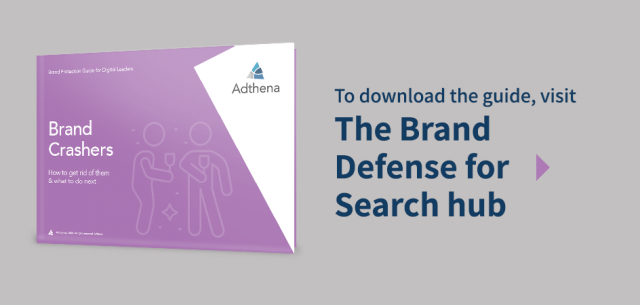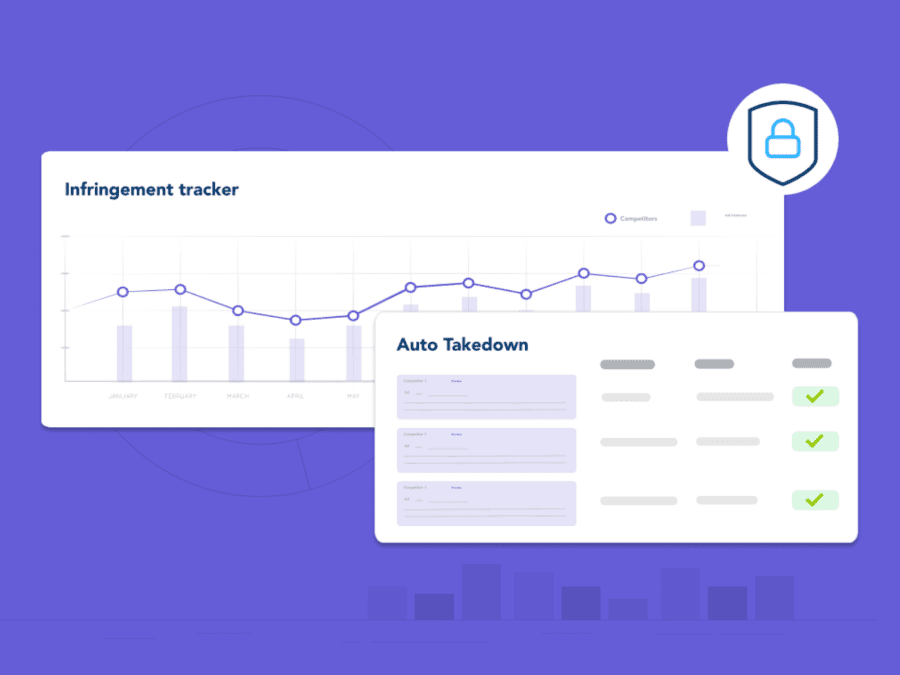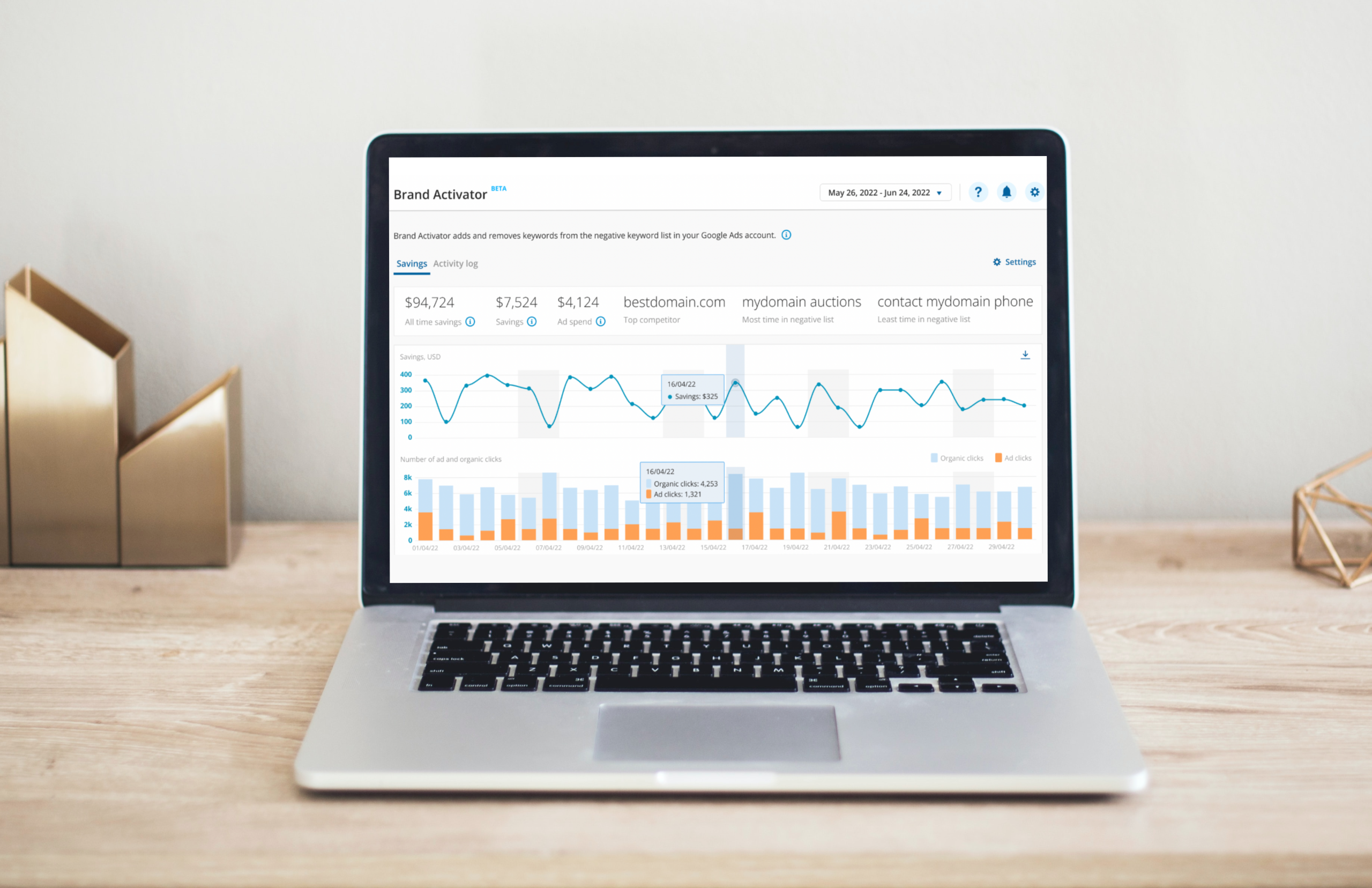Just think about it: for every ad you run online or offline, about 75% of audience response* will be in the form of an online search. And if you don’t get that click, your ad budget has just paid for a customer for someone else – potentially for life. What’s more, monitoring brand terms for PPC and managing trademark infringements manually is time-consuming and relentless for brand owners.
Competitive PPC brand bidding is commonplace and largely unchecked across major search verticals. Perpetrators are not only your competitors (the thieves), but also your affiliates and partners (the cannibals). Here’s what it looks like:
Thieves steal brand clicks away from you:
Competitive PPC brand bidding takes place when an advertiser bids on a rival’s brand terms and steals their clicks. Brand bidding from market rivals affects both consumer-facing brands and business-to-business operators. It can occur when rivals bid on either pure brand, or key brand+generic combination search terms of a close competitor. The intention is to grow their own market share via another advertiser’s PPC branded terms or deliberately hijack the consumer purchase journey.
The result is CPC inflation on brand terms as advertisers retaliate and a bidding war develops. PPC brand bidding is common across many verticals of search, and it is minimally regulated
Trademark infringements take place when a rival advertiser uses a brand’s name or trademarks in headline text or ad copy. These infringements are violations of trademark law, and takedown requests are enforceable via Google or a cease and desist request.
However, detecting trademark infringements can be difficult. Rivals can also use your trademarked terms to negatively influence consumers, making the impact of trademark infringements hard to quantify.
Cannibals charge you for your own clicks:
Affiliates who send visitors to your brand’s website through a referral link in exchange for a commission, can also present a brand risk through cannibalization. As can businesses or platforms that help promote your products or services online as partners.
This can happen when partners or affiliates violate your agreed guidelines and appear on the results page for the same branded search terms you’re bidding for yourself. As a result, you may pay a commission for a click you actually would have earned via your own ads or organically. Compounding the problem: the cause of the resulting CPC inflation can be hard to diagnose.
Fighting cannibalization would require conducting branded search queries in thousands of locations and at varying times to reveal the nature of the violations. This is virtually impossible to do manually.
How can you protect yourself?
Most recent industry data from Adthena reveals that 21.5% of a typical brand’s clickshare goes to competitors**. And with the scale of the problem, infringements have proved difficult to quantify, assess, and manage.
But with automated solutions powered by AI, brands finally have the upper hand. Monitoring competitor ad copy across your entire market and analyzing rival search term strategies at scale can now be fully automated.
………….
* https://99firms.com/blog/ppc-stats/
**Adthena industry average data taken from 450+ businesses’ text ads across the EU, USA and Australia between 01/01/19 – 31/12/19. Includes brand terms and brand generic terms.
Read more insights and download the guide ‘Brand Crashers: how to get rid of them and what to do next’ on our Brand Defense for Search hub.





